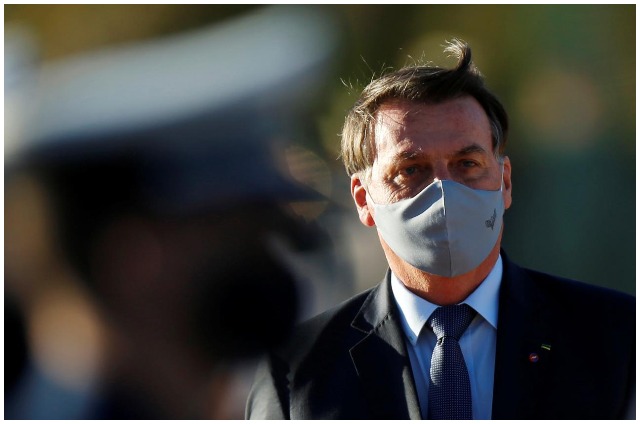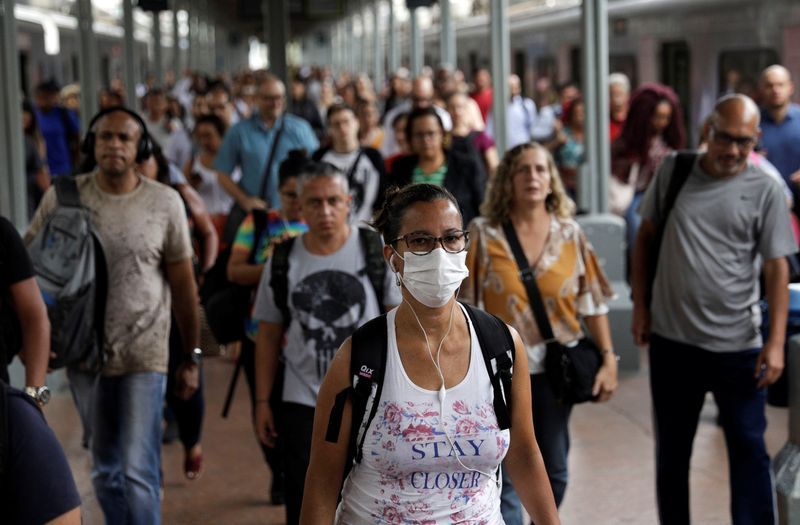The Social Democrat simply referred to by his initials FHC had once been president, before the Workers Party took power back in 2003. Now, his views about the latest twist in Brazil’s political corruption turmoil is a devastating one.
“Society will energetically protest. It’s scandalous appointing a person as a minister just at a moment when that person faces criminal proceedings,” he said in remarks to the online edition of O Globo.
He was referring to former president Luiz Inacio Lula da Silva, whose appointment comes from a current president with her back up against the wall, Dilma Rousseff.
The country’s “moral crisis” will get worse, FHC went on, noting how the political drama is taking place barely five months before the Summer Olympics in Rio de Janeiro.


Rousseff’s popularity rating has plunged to 10 per cent, and there have been frequent mass protests in recent months. On Sunday, some 3.6 million people took to the streets chanting “Dilma out, Dilma out.”
Lula, who was president 2003 to 2010, was rounded up by police two weeks ago for questioning amid allegations raised by the Sao Paulo prosecutor’s office that he received favours from a construction company.
Lula denies that he got any special favours with his luxury apartment.
The Lula investigation is just part of a much larger corruption scandal enquiry in which the hero’s role is being played by a crusading judge, Sergio Moro.
His investigations in the operation code-named Lava Jato (Car Wash) are aimed at least 57 politicians alleged to have taken kickbacks in contracts awarded by the semi-state-owned oil concern Petrobras for, among others, the construction of new refineries.
The list of suspects are from both Rousseff’s leftist Workers Party (PT) as well as from opposition parties. But most of them are from the PT, with Rousseff and Lula the two most prominent names.
When Moro learned of the allegations that Sao Paulo prosecutors were raising against Lula, the judge moved very quickly. But just as quickly, a day later, Lula was appointed as Rousseff’s chief of staff, a cabinet-level post.
As a cabinet minister, Lula is immune from Moro’s judicial proceedings. Only the Supreme Court can handle his case, and the former president would be hopeful of lenient treatment there.
Even more explosive was that on Wednesday, Moro released an audio tape of a telephone wiretap revealing a conversation between Lula and Rousseff discussing his appointment which could prevent his possible arrest.
On the tape, she is heard offering to send the official appointment notice to him “in case it is needed.”
It’s a move by Rousseff of saving her own office with Lula’s help.
Her support within the PT is crumbling, and Lula still has the best connections there. Lula also wants above all to get the economy moving again and hopefully turn public opinion around.
In 2015 Brazil’s economy shrank by an alarming 3.8 per cent.
There are doubts about Lula’s ability to deliver. There is no money left to stimulate the economy.
Lula, whom US President Barack Obama in 2009 called “the world’s most popular politician,” is no longer the star he once was back in the day when he put through costly social welfare programmes to help the country’s poor and when all the talk was of “Boomland Brazil” and the “green miracle” of South America.
Now, he’s a 70-year-old man battling the judicial system.
In parliament there was an uproar when news of his chief of staff appointment leaked.
Rousseff, whose term goes until 2018, faces the possible loss of her most important coalition partner, the Brazilian Democratic Movement Party (PMDB).
Many observers believe she may have only a few months, maybe even just weeks, left, as meanwhile she is barely able to get any urgently needed reform legislation through parliament.
In this atmosphere, a surprisingly great number of more affluent people are yearning for the military to step in.
At the same time, Lula in his questioning by the police vowed that he would show his opponents what he’s made of.
“I am an old man and actually wanted to settle back. But now I aim to run for the presidency in 2018.”










